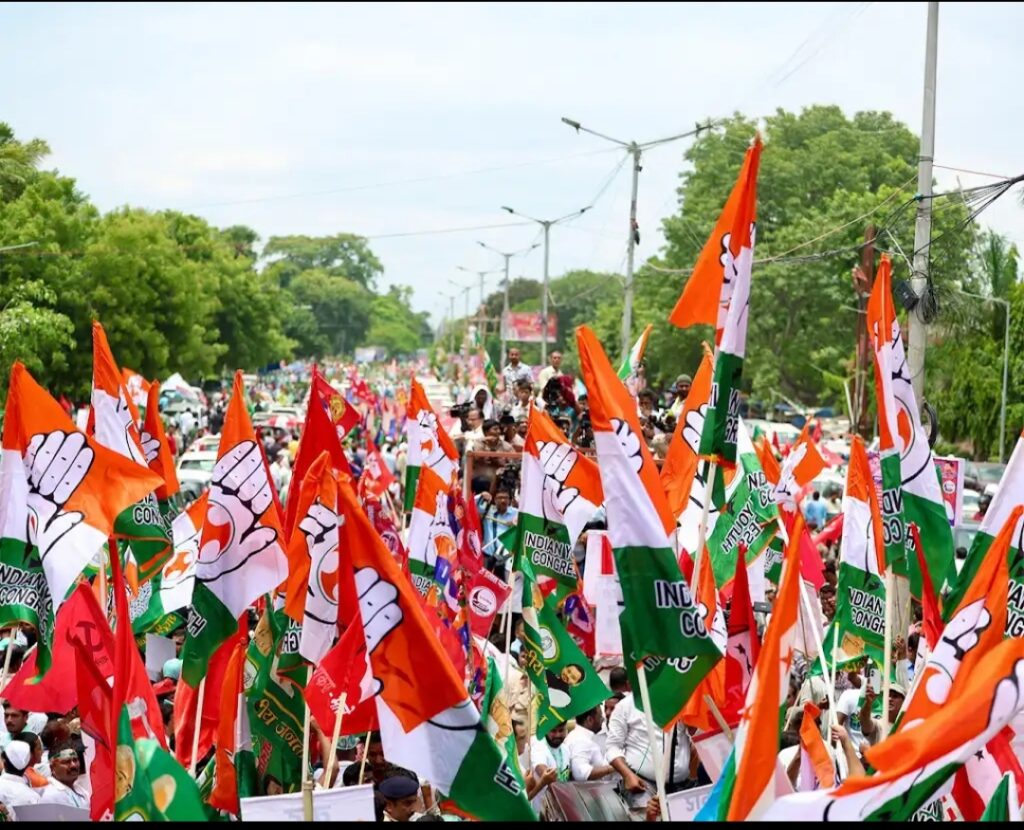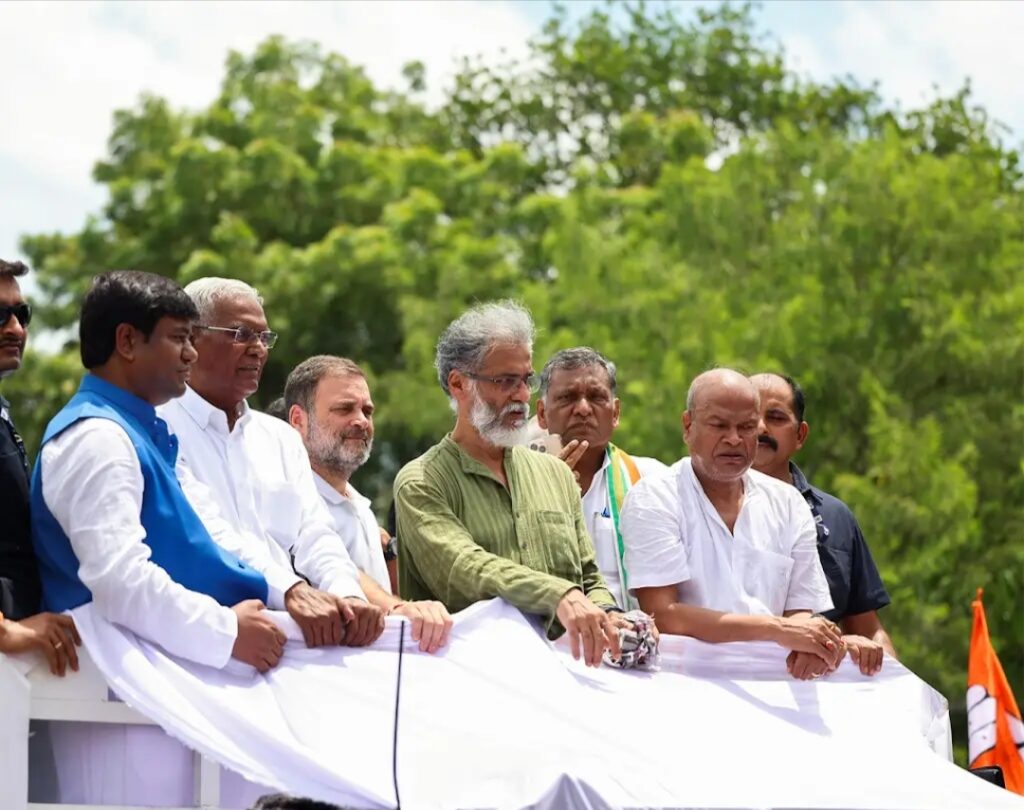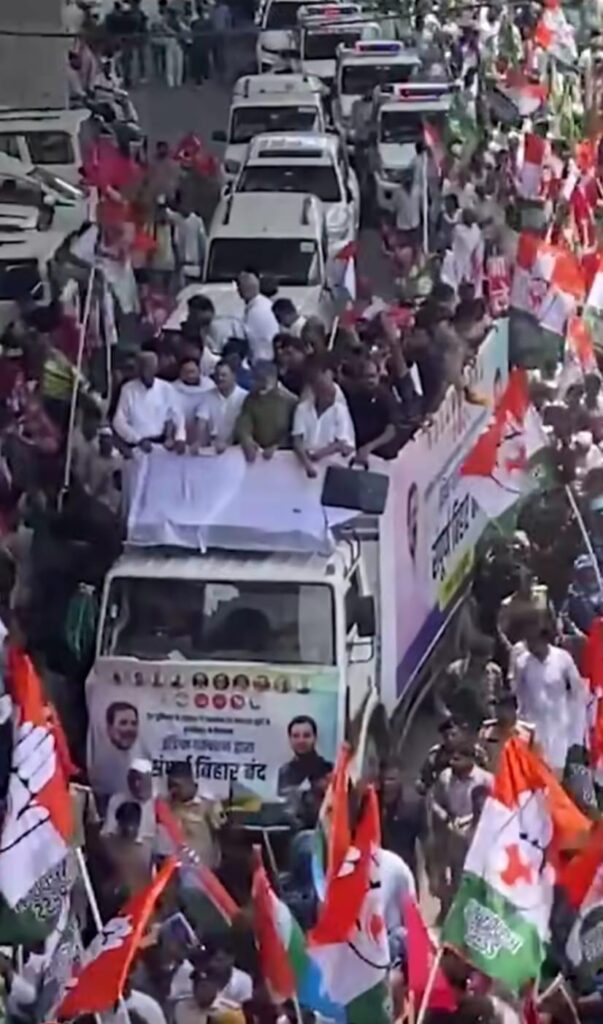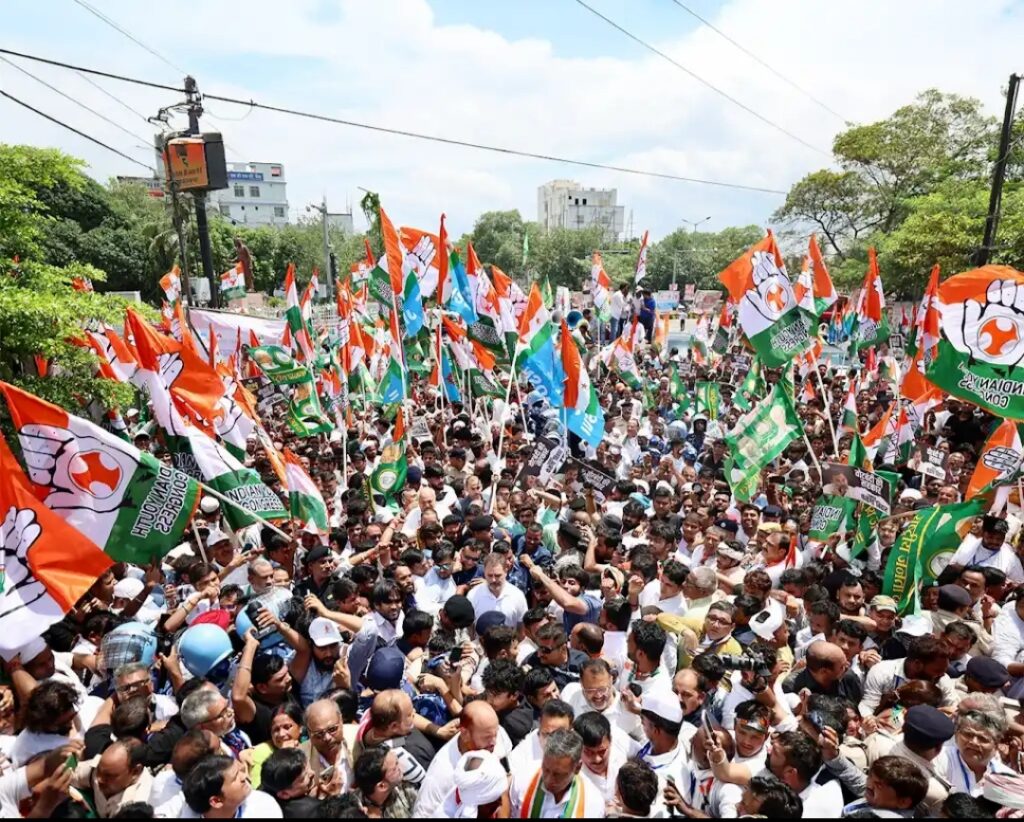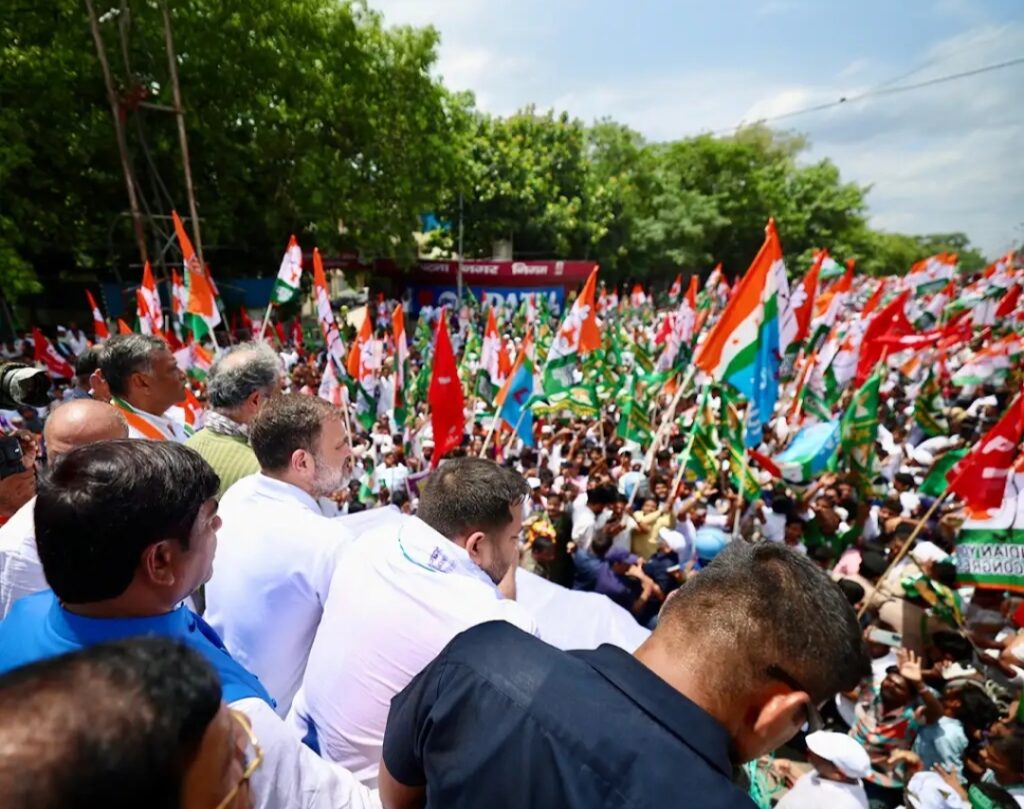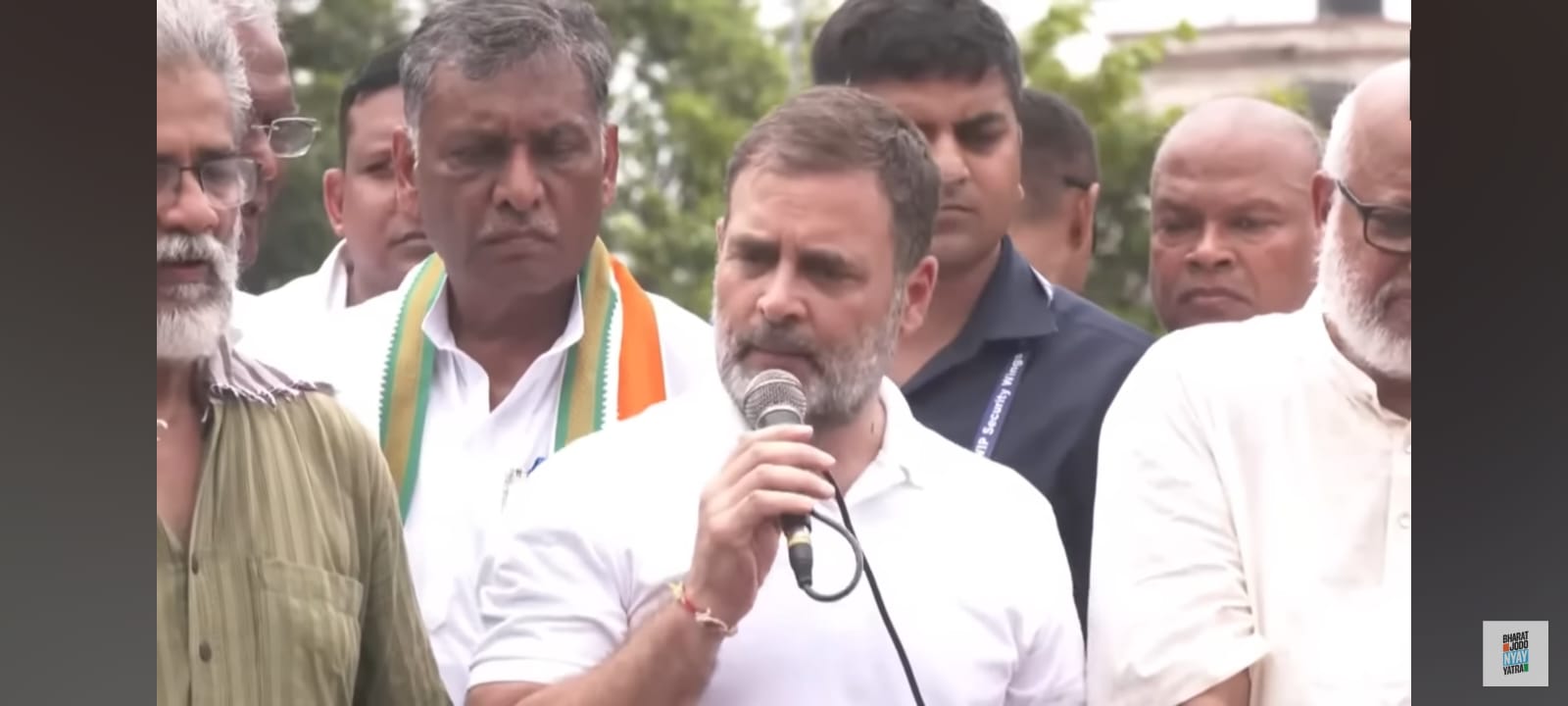New Delhi- A storm of dissent swept across India on Wednesday as trade unions, workers’ organizations, and opposition parties under the INDIA alliance staged coordinated nationwide protests against the Modi government’s contentious labour policies and the ongoing electoral roll revision, particularly in Bihar. The culmination of these protests—marked by a successful Bihar Bandh—has drawn significant national attention and fuelled a growing political confrontation.
The shutdown in Bihar was notable not just for its scale but for the presence of top national leaders. Leader of opposition in Lok Sabha Congress MP Rahul Gandhi, RJD leader Tejashwi Yadav, MA Baby Gen Secretary CPIM, CPI General Secretary D. Raja, and CPI(ML) leader Dipankar Bhattacharya led a massive joint protest march in Patna, flanked by leaders from other INDIA bloc constituents. Their message was clear: the revision of electoral rolls in Bihar is being seen not as a routine administrative exercise, but as a politically motivated move aimed at manipulating voter demographics ahead of the 2025 Bihar Assembly polls and, ultimately, the 2026 Lok Sabha elections.
The echoes of the protest were felt far beyond Bihar. States like West Bengal and Kerala, known for their strong labour movements and left-leaning governments, witnessed large-scale demonstrations and worker mobilizations. In Kolkata and Thiruvananthapuram, public transport disruptions and rallies highlighted the broad reach of worker discontent. The labour strike was supported by all major trade unions, including INTUC, AITUC, CITU, and AIUTUC, who opposed what they described as “anti-worker, anti-people” reforms and the dilution of labour protections.
Delhi Union of Journalists Joins Nationwide Protest Against Anti-Labour Laws
The Delhi Union of Journalists (DUJ), the oldest journalists’ body in the national capital, organized a solidarity march in support of the nationwide strike called by national trade unions against the anti-labour laws and anti-worker policies of the current regime. The journalists’ protest was led by veteran journalist S.K. Pande and DUJ President Sujata Madhok.
In Delhi, the heart of political action, Jantar Mantar turned into a hub of resistance as trade unionists from across the country gathered for a day-long sit-in. Top union leaders addressed the crowd, condemning the four new labour codes that the Modi government is attempting to enforce. “These laws strip away hard-earned rights of workers and hand unchecked powers to corporations,” said a senior AITUC leader. Placards, slogans, and fiery speeches marked the protest as demonstrators called for a rollback of the codes and a halt to electoral manipulation.
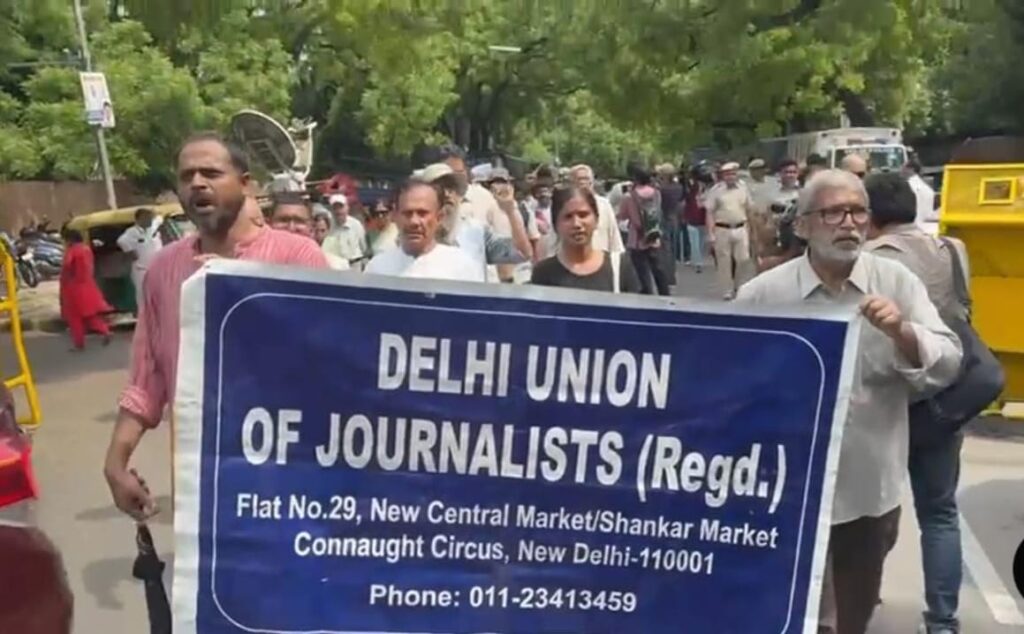
Rahul Gandhi, speaking at the Bihar rally, intensified his attack on the ruling BJP. Referring to alleged voter list irregularities in Maharashtra, he warned that the same tactics were being replicated in Bihar under the guise of electoral roll ‘cleansing.’ “This is not just about Bihar. It’s about subverting democracy. We will not allow the voice of the people to be silenced through manipulation,” he declared.
The Chief Election Commissioner Gyanesh Kumar’s recent decisions regarding the Special Intensive Revision (SIR) of electoral rolls have come under sharp scrutiny. While the Election Commission has maintained that the exercise is part of routine verification, opposition leaders argue that the timing and scale—targeting 8 crore voters in Bihar—suggest political motivations. Many see this as a pilot project, potentially to be rolled out in opposition-ruled states like West Bengal in the lead-up to 2027.
The confluence of labour unrest and electoral concerns has created a volatile political environment. What began as a protest against labour laws is now evolving into a broader resistance movement—uniting workers, political parties, and civil society around the larger themes of democracy, transparency, and economic justice.
As the INDIA alliance gains traction through street protests and public mobilization, it remains to be seen whether this momentum can be translated into a coherent electoral challenge. But for now, Wednesday’s Bihar Bandh has marked a significant turning point—one that could shape the contours of Indian politics in the months to come.
[Writer is Senior Journalist and Political Commentator]
